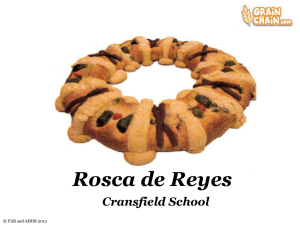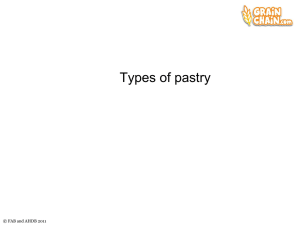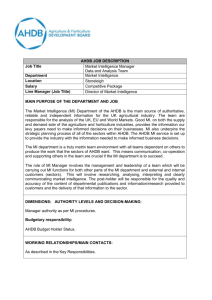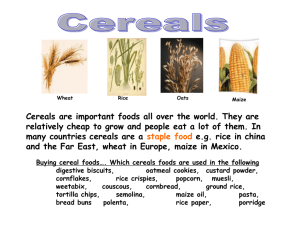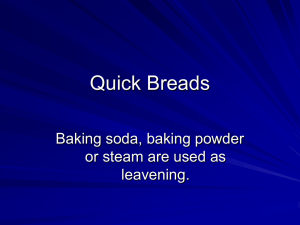Varieties of Wheat Flour: Types & Milling
advertisement
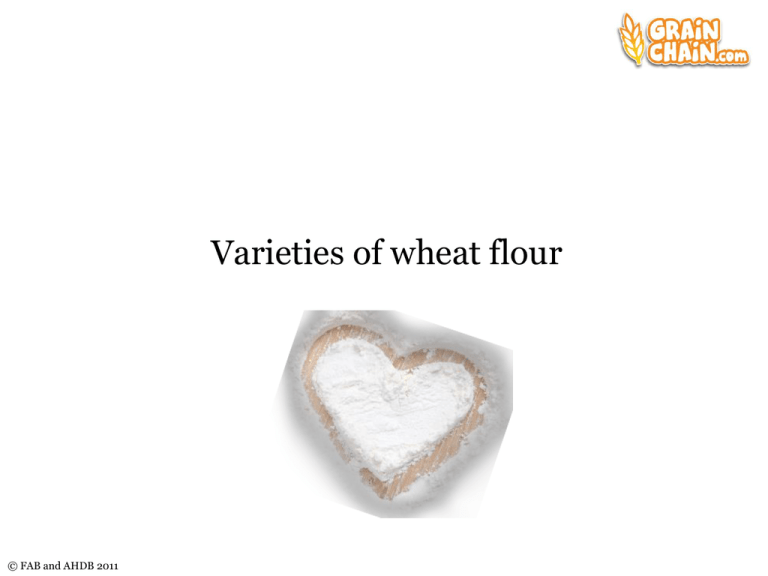
Varieties of wheat flour © FAB and AHDB 2011 Flour milling During milling, different parts of the wheat are used or removed at different stages to create different types of flour. © FAB and AHDB 2011 Types of flour •Wheatgerm – This can be white or brown flour with at least 10% made up of wheatgerm added during the milling process. © FAB and AHDB 2011 Types of flour •Wholemeal – This is made from the whole wheat grain without any additional ingredients or any parts being removed during the milling process. © FAB and AHDB 2011 Types of flour Stoneground – This is wholemeal flour ground in a traditional way between two stones using the whole wheat grain with no additional ingredients or any parts being removed. © FAB and AHDB 2011 Types of flour •Brown – This usually contains about 85% of the original grain. During milling some bran and germ is been removed. © FAB and AHDB 2011 Types of flour Organic –This is made from grain that has been grown to organic standards. Growers and millers must be registered and are subject to regular inspections. © FAB and AHDB 2011 Types of flour •White – This usually contains around 75% of the wheat grain. During milling most of the bran and wheatgerm is removed. © FAB and AHDB 2011 Types of flour Malted wheatgrain – This is brown or wholemeal flour with added malted grains during the milling process. © FAB and AHDB 2011 What about other types of flour? Around the world there are flours which are not made from wheat. Some of the more unusual types include flour made from coconut, potato, peas and chickpeas. Other grains such as rye, oats and spelt are often used. © FAB and AHDB 2011
